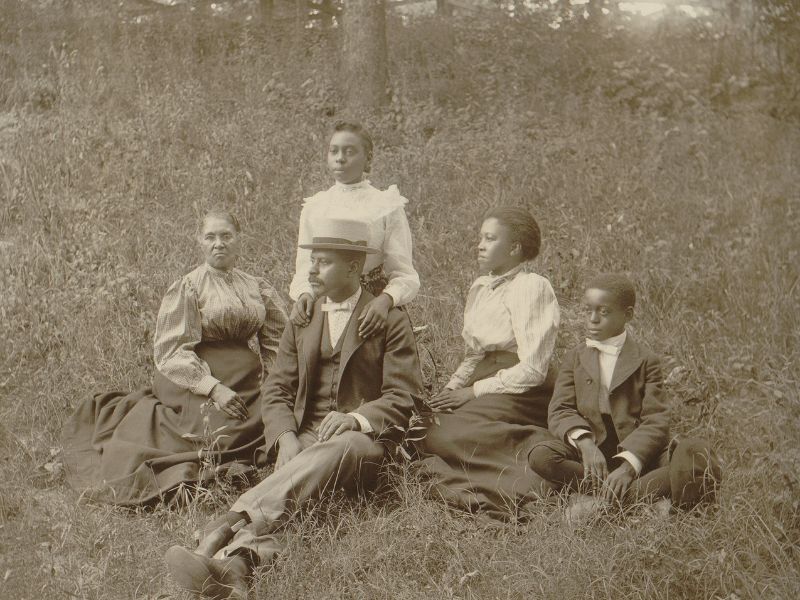Using Freedmen’s Bureau Records Records in Genealogy Research
***Please note that this post contains affiliate links which means I may earn a commission if you decide to purchase a product/service. This does not cost you extra. Be assured I only recommend products/services that I use and think you would like too. Read my disclosure policy and privacy policy.
The Bureau of Refugees, Freedmen, and Abandoned Lands is often simply referred to as the Freedmen’s Bureau. Often as genealogists, we are aware of the Freedmen’s Bureau, but do not fully realize the potential it holds for our genealogy research. Let’s take a closer look.
What is the Freedmen’s Bureau?
The Freedmen’s Bureau was formed on March 3, 1865 by the War Department for the purpose of negotiating relief efforts for freed black slaves and poor whites after the Civil War. Services included providing food, housing, medical care, legal aid and even the establishment of schools and colleges.
While successful in many areas, the Freedmen’s Bureau was hampered frequently by a shortage of funds and many political conflicts. Eventually, amid political pressure Southern politicians the bureau was closed in 1872.
Types of Records to Find
The Freedmen’s Bureau created a number of types of records. I was quite surprised when I started looking into them. Note: Click through the links to find examples of each type of Freedman record.
- Labor Contracts – An example can be found here for a list of labor contracts of freed persons being transported to Tennessee to work under contract for James Bond, Jr.
- Register of Indentures – These were often under aged children who were orphans or whose parents were unable to provide for them. These children were apprenticed to individuals who could support them.
- Reports on Outrages Against Blacks – Outrages by whites against blacks in the time after the Civil War. This example is from North Carolina. [I confess I found these disturbing to read.]
- Marriages – Lists of marriages legalized by the Freedmen’s Bureau. Prior to emancipation of slaves, many marriages were “informal” in the sense that most slave marriages were not legally recognized.


Locating Freedmen’s Records
Researchers of the Freedmen’s Bureau records can them at:
- FamilySearch.org
- Ancestry.com
- Mapping the Freedmen’s Bureau
- NARA – A sample of records are online. NARA provides a good background on the records.
- The Freedmen’s Bureau Online
Researching the Freedmen’s Bureau records presents challenges for the researcher. Not all records are indexed in the original records. Time and patience (and persistence) are required for searching these records. Persons may have changed their names. Many records are not yet available online to the researcher. Many records did not survive. Lastly, there was a lack of consistency state to state, so variation of record types exists.
Have you had success researching the Freedmen’s Bureau’s records? Share you story in the comments below or on the Facebook page!







4 Comments
Jana Last
Lisa,
I want to let you know that your blog post is listed in today’s Fab Finds post at http://janasgenealogyandfamilyhistory.blogspot.com/2016/02/follow-friday-fab-finds-for-february-26.html
Have a great weekend!
LisaL
Thanks so much, Jana!
Rashawn Miller
Thanks for the helpful information!
I have been able to find my maternal 2g grandparents in Lafayette AR labor contracts from 1866 to1868. Workers were listed in family groupings, and one listed the names and ages of the young children in each family, who otherwise wouldn’t have been identified. The information helped a DNA cousin solve a mystery about the kinship of someone who looked like her mother! The terms of the contracts are heartbreakingly similar to outright slavery.
I’ve also found a contract for my maternal 3g grandparents, along with the listing of their monthly purchases, which were deducted from their meager earnings.
Reading through outrages, I’ve seen stories of fierce bravery, awful cruelty and incredible inspiration. The newly freed men and women and the Bureau agents who risked their lives to carry out the law to protect them deserve to be remembered.
These records are an amazing and painful picture of American history.
LisaL
What an amazing research success story you share!